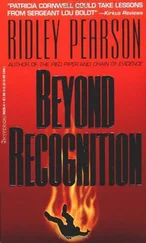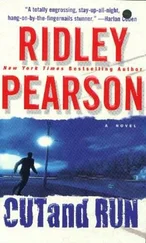“You will please tell me what you were doing in Hendrikplantsoen,” the sergeant says.
“I told the constables—the two who abducted me.”
“Detained.”
“I also told them I will speak with Chief Inspector Joshua Brower. No one else.”
“You are hardly in a position to make such demands.”
“Not a demand, a condition.”
The sergeant puts down Knox’s passport deliberately.
“Import, export,” Knox says.
“Uh-huh.”
“As you can see, I often trade here in Amsterdam. As I have for several years.”
“You ‘trade’ in thirty or more cities and countries, Mr. Knox, many of which are not on the best terms with your government.”
“Do not make the mistake of jumping to conclusions, Sergeant. I am an importer. It’s what I do. Period. Chief Inspector Brower, please.” The sergeant thinks he’s a spy.
Knox has a dozen questions he would like to reciprocate with, all having to do with the rendezvous in the park. But he can’t go there. He and the sergeant bat the birdie over the net until Knox folds his arms and bites his tongue and challenges the sergeant to a staring contest that the sergeant cannot possibly win. Knox is the world champion.
The sergeant is too prideful to contact Brower. He returns Knox to a holding cell believing he can break him down this way, but the hours stretch out and it’s only then that Knox realizes Brower’s absence can be attributed to his having the night shift.
They’ve taken Knox’s possessions, including his watch, so he has no idea of the time when two officers lead him back to the same interrogation room and leave him.
Chief Inspector Brower is a freckled redhead with pale green eyes, a round face and thick bones, a man who might be ten years younger or older than the forty he looks. He wears chinos, a white shirt that was ironed at home and a Scottevest, a source of amusement for Knox, who wears the same coat.
He shuts the door.
“I’m sorry about this,” Brower says. “Not terribly hospitable of us.”
“I don’t think we ever met in Kuwait,” Knox says.
“David and I . . . we go back a little further than Kuwait.”
Knox puts that down as military service but he’s not going to push. Dulwich’s time before Kuwait remains foggy; despite the closeness and length of their friendship, Knox has heard little to nothing about it.
“Your sergeant didn’t like me.”
“We take a dim view of people following our superintendents.”
Knox takes note of the superior rank of the cop in the park. The mystery woman is well connected. He tries to measure how much capital the Dulwich connection gives him. He believes he misjudged it initially. Brower’s eyes suggest a stubbornness and a loyalty to his department that concern Knox. He waits him out.
“Do you want to tell me how you ended up on that bench?”
“I was following the woman.”
“We take an even dimmer view of stalking.”
“She’s of interest to us.” Knox strives to remind Brower of his connection to Dulwich.
“I can try to find out for you, but chances are it will only impede your efforts.”
“Poke the nest.”
“Just like that. Yes.”
Knox shrugs. “Her name would help.”
“I’m sure it would.”
“She had a colleague of ours under surveillance.” Knox can safely go this far, but not much farther. Brower knows more than he’s telling—how much more, Knox can’t tell.
“You received the police report,” Brower says. It might be a question.
“That was helpful,” Knox says. “Extremely helpful.”
“You and David must not make the mistake of interfering with an active investigation.”
“Of course not.”
“The young girl, Berna, is ours. The article caused a political firestorm. You get in the way—”
“Never our intention,” Knox lies. “Our interest is”—Knox vamps—“protecting the free speech of the people interviewed in the article.” He’s been told this is how Dulwich pitched it to Brower. Private concerns don’t shut down illegal sweatshops; that is reserved for authorities.
“Important, certainly. But should that work interfere—”
“It will not.”
“This woman you were following has nothing to do with those interviewed.”
“There you go,” Knox says. “That’s all I was trying to find out.”
“So there’s your answer.”
“So it would appear.” Knox hesitates, wondering how honest he dare be. “I can’t tell if we’re on the same side or not.”
“David is a good friend.”
Knox nods.
“You will be released. You must appear before a magistrate in the morning. I will vouch for you—it was mistaken identity. There will be no charges.”
“Thank you.” Knox is surprised it must go this far. “Who is she?”
“It is not my case.”
“Can you find out for us?”
“It is possible. I will let David know, if so.”
“What do you know about the community center on Speijkstraat?”
“In regards to . . . ?”
“There was an assault. Two teenage boys. On a woman.”
“Was this reported?” Brower’s concern is genuine.
“No. We didn’t want to make our efforts any more difficult. I’m sure you understand.”
“Teens?”
“Yes.”
“This is a good neighborhood. But these are difficult economic times for everyone.”
“Unusual?” Knox asks. “We need to determine if my colleague was the real target.”
“This woman . . . the one you were following. She sent your colleague there, to the stichting ?”
Dulwich knew how to pick them.
“I can understand your interest in her,” Brower says.
“Nice to know who your enemies are. If the police are—”
“She is not ours.”
Knox ticks this off his list. Brower looks confused. Knox says, “A CI for your superintendent?” He adds, “Confidential informant,” though it’s unnecessary, perhaps insulting, given Brower’s dismissive reaction.
“Doubtful,” Brower says.
Knox has to make a judgment call. He decides this is not a time for holding back. “A vendor at a street market put my colleague in that alley. This other woman—who later met with your superintendent—intervened during the assault.” He cuts off Brower before the man can interrupt. “There’s no question it was her. The question is whether or not the vendor created the assault to allow a partner to intervene and appear the hero, or if that’s overthinking it.”
“And you stayed with this woman all night?” Brower sounds dubious. “This is how you came to connect her with our super?”
Knox doesn’t answer, which to him is not technically lying to the police. “The next thing I know, she’s meeting some guy in a park. And here I am.”
Brower is warming up to Knox. He considers him carefully for the better part of a minute. It seems like much longer. “The city government is in the midst of a facelift that is politically charged and possibly economically suicidal, at least in the short run. There is a transformation under way from the Amsterdam of marijuana bars and open prostitution to a city with core family values. We are doing what your Las Vegas did over a decade ago. We’re a little late. This newspaper article, the idea of child slave labor and all that implies—child prostitution, sex slaves—this is exactly what the city can ill afford at the moment. It also hurts the Netherlands’ standing in the EU. Which is a long-winded way of saying your presence here is ill-advised and unwanted. This is not to say child labor is in any way condoned, or that we would turn a blind eye. Quite the opposite, I assure you. It’s more the outsider element, and of course the international publicity. The existence of a sweatshop is being investigated. It is an active investigation—any interference in an active investigation is itself a crime. You and David and this colleague of yours—I’m assuming it’s a woman because of the assault—should take note of this. How and if this woman you were following connects to our work as opposed to yours . . . as I have said, I will look into it and report back to David. In the meantime . . .”
Читать дальше












